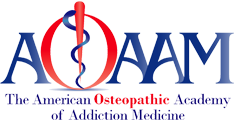Cannabis and Adolescent Brain Development
Bertha Madras, PhD (The Honorable)
Register Now - On-demand
Cannabis (marijuana) use is increasing, with growing commercialization facilitating new trends in cannabis consumption - more daily use and use of higher potency forms of the drug (high % THC or 9-tetrahydrocannabinol, the key psychoactive cannabinoid in cannabis). Acutely, cannabis produces euphoria, relaxation, reduces stress, but it can also impair cognitive function, coordination and engender anxiety and psychosis. With ongoing use, these adverse effects may be compounded by the development of cannabis use disorder (CUD) and other neuropsychiatric symptoms or disorders. The magnitude of adverse consequences and their persistence are associated with dose, use frequency, duration, and age of onset of use. Compared with adult onset, credible evidence has revealed that adolescent-onset and ongoing cannabis use confers a heightened risk of developing addiction, psychosis, cognitive impairment, depression, anxiety, suicidality, with some effects emerging during adulthood. Adolescent vulnerability during this critical phase of adolescent neurodevelopment is foreseeable, as the endogenous endocannabinoid signaling system continues to evolve and contribute to shaping brain architecture. In competing with endocannabinoid agonists at the cannabinoid receptor 1 (CBR1), THC interposes in these exquisitely controlled processes to dysregulate endocannabinoid signaling, triggering incompletely understood neuroadaptive changes. Recent trends of daily use and/or consumption of high potency cannabis products conceivably amplify the overall risks for adolescents, and also in the developing fetal brain. This presentation will describe:
Recent trends in cannabis use among youth, new and more potent forms of cannabis, and delivery systems, cannabis risks for the developing fetal and adolescent brain and how this information can be used.
At the conclusion of this seminar, attendees will know and be able to counsel patients on:
- Trends in THC Potency and Delivery Systems
- Trends in THC Potency and Delivery
- Marijuana Risks for Developing Fetal Brain Systems
- Marijuana Risks for Developing Adolescent Brain
- What you can do with this information...
|
CME: This webinar has been approved for a maximum 1, AOA Category 1-A CME credits. Physicians should claim only the credit commensurate with the extent of the extent of their participation.
|
|
This webinar is free to AOAAM members.
Non-members - $35.
|
